 |
Photos from the FCCC Subsidiary Bodies
For June 4
(please click individual photo for larger image)
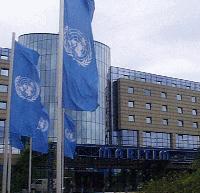 |
The Maritim Hotel, the official site of the subsidiary bodies of the United Nations Framework Convention on Climate Change (FCCC), Bonn Germany, June 2-12, 1998 |
| Chair Bakary Kante (Senegal) opened the first meeting of the SBI. |  |
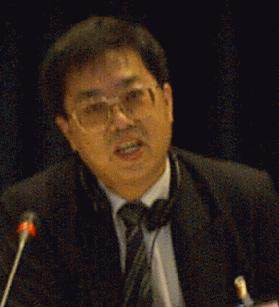 |
Chair Kok Kee Chow (Malaysia) said SBSTA's primary aim is to identify common ground and delegates must make best use of the scheduled time. |
| Maria Julia Alsogaray, Secretary of
Natural Resources and Sustainable Development of Argentina, characterized COP-3 in Kyoto
as a dynamic step toward meeting the FCCC's goals and said COP-4 in Buenos Aires should be
another step in the same direction. |
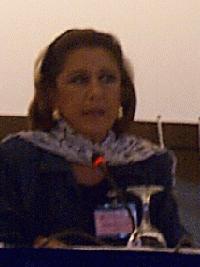 |
 |
(Chair Kok Kee Chow) expressed "extreme" disappointment at the low targets agreed in Kyoto. Supported by SAUDI ARABIA, IRAN and VENEZUELA, he requested an additional item on methodological issues related to Articles 4.8 and 4.9 (minimizing adverse impacts of response measures). Delegates debated this proposal at length, and agreed to include an item on "referrals from SBI." |
UNEP Executive Director Klaus
Töpfer pointed to the connection between flexibility and minimizing repercussions for
economic growth potential. Statement available in RealAudio Statement available in RealAudio |
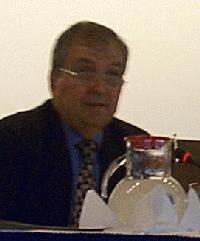 |
 |
Michael Zammit Cutajar, FCCC
Executive Secretary, noted 37 countries have signed the Kyoto Protocol, including Parties
representing 39% of Annex I CO2 emissions. Statement available in RealAudio Statement available in RealAudio
|
| Standing room only in the "United States Experience with SO2 Emissions Trading" |  |
 |
At a Special Event of the FCCC, Ingo Puhl, Senior Policy Analyst for the Center for Clean Air Policy, made a presentation to delegates, NGOs and other participants on the use of a top-down approach to the setting of baselines for Joint Implementation (JI) projects. He argued that such an approach could dramatically reduce transaction costs for project activities, thereby increasing the level of JI activities, protecting the environmental integrity of the JI system and improving the regulatory flexibility of the JI instrument. The full audio presentation can be downloaded…. The Center for Clean Air Policy is at the following website:http://www.ccap.org |
| At a Special Event of the FCCC, Brian J. McLean, Director of the Acid Rain Division of the U.S. Environmental Protection Agency, briefed delegates, NGO's and other participants on the U.S. experience with SO2 Emissions Trading. He noted that the program has achieved 100% compliance due in large part to the use of automatic financial penalties for non-compliance and that reductions in SO2 emissions have been larger than expected. You can learn more about the SO2 Emissions Trading program by visiting the Acid Rain Program website at: http://www.epa.gov/acidrain |  |
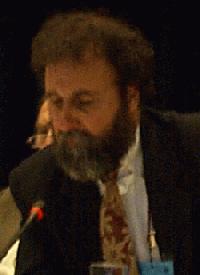 |
On cooperation with relevant international organizations, IPCC Chair Dr. Robert Watson said the IPCC will produce technical reports to assist the operationalization of the Protocol on: emission scenarios, which will review the literature and formulate a new set of scenarios; methodological and technological issues in technology transfer; and one on aviation and the global atmosphere, which assesses the relevant atmospheric science, aviation technology and socio-economic issues. The Third Assessment Report will place climate change in a broader evolving social context. |
| The Secretariat introduced: Mechanisms for cooperative implementation (FCCC/SB/1998/1); Submissions by intergovernmental and non-governmental organizations (FCCC/SB/1998/Misc.2); Submissions from Parties on preparatory work needed for COP-4 (FCCC/SB/1998/Misc.1); and Update on activities implemented jointly (FCCC/SBSTA/1998/Inf.3) | 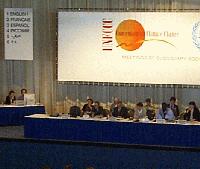 |